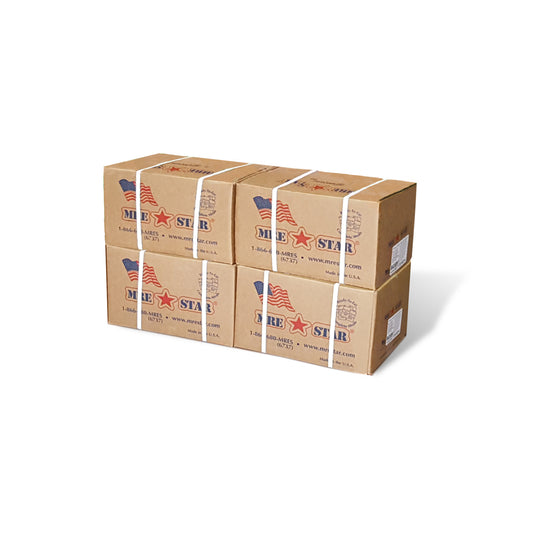What is Solar Weather?
18 May 2012
Often, when we think of weather, we think of moisture, atmospheric pressure, temperature and other qualifiers. However, many of these conditions don’t exist in the vacuum of space.
The key components of space weather include electromagnetic energy (ie. light, x-rays), magnetic fields, and plasma - ionized or charged atomic particles.
This video from NASA's Youtube channel that shows the sun’s activity over the last 3 years and how it can have a large impact on our weather and how human technology can make us more vulnerable to solar outbursts.
We’ve included some of the most prominent space weather phenomenon and some resources that you can use to monitor these events.
 Sunspots
These are cooler, darker areas on the sun’s surface. They are caused by intense magnetic activity. They are a sign of possible solar flares, coronal mass ejections, etc. They tend to cluster in bands just above and below the equator.
Solar Cycles
Scientists have been measuring sunspots for a long time now. They’ve noticed that the sun will go through cycles of increasing and decreasing numbers of sunspots. They tend to move around an 11 year cycle - also known as a solar cycle.
When the sun reaches the end of solar cycle, new sunspots will appear near the equator. Sunspots tend to appear in high latitudes when it is starting a new cycle. However, many times, the cycles can overlap, causing some confusion.
Solar Winds
The continuous flow of charged particles from the sun that permeates the solar system.
Solar Flares
A solar flare is a brief eruption of intense high-energy radiation from the sun's surface. When magnetic field lines cross and reconnect, energy explodes outward with a force exceeding that of millions of hydrogen bombs.
Sunspots
These are cooler, darker areas on the sun’s surface. They are caused by intense magnetic activity. They are a sign of possible solar flares, coronal mass ejections, etc. They tend to cluster in bands just above and below the equator.
Solar Cycles
Scientists have been measuring sunspots for a long time now. They’ve noticed that the sun will go through cycles of increasing and decreasing numbers of sunspots. They tend to move around an 11 year cycle - also known as a solar cycle.
When the sun reaches the end of solar cycle, new sunspots will appear near the equator. Sunspots tend to appear in high latitudes when it is starting a new cycle. However, many times, the cycles can overlap, causing some confusion.
Solar Winds
The continuous flow of charged particles from the sun that permeates the solar system.
Solar Flares
A solar flare is a brief eruption of intense high-energy radiation from the sun's surface. When magnetic field lines cross and reconnect, energy explodes outward with a force exceeding that of millions of hydrogen bombs.
 X-Class solar flares have the largest impact on Earth. They cause radiation storms that can cause radio blackouts. These storms typically hit the upper atmosphere. Solar flares can also be classified by M-class (medium) and C-class (low) flares.
The Earth’s atmosphere usually protects us from solar flares by absorbing the x-rays. Usually, when this occurs, it causes the Earth’s ionosphere to expand due to heat and energy. This can affect radios and satellite communication. On some occasions, it can cause an increased amount of friction on satellites and pull them back to earth.
Coronal Mass Ejection (CME)
When magnetic field lines twist around the sun, many times they can twist so tight that they snap like a rubberband, then reconnect at other points. When they snap, the magnetic fields are no longer in place and can release large amounts of the sun’s plasma. Once freed, the plasma explodes causing a coronal mass ejection.
On any given day, the sun may produce one to five CMEs. The intensity of the CME depends on the size of the explosion, the magnetic strength of the particles and the speed at which they are traveling.
Once these particles reach Earth’s atmosphere, they can cause lightning storms due to the magnetic energy they contain. With this increase of power, it can cause damage to power transformers, GPS signals, or gas and oil pipelines.
What would you recommend? Do you have any sources that help you track space weather? Comment below and share the wealth!
X-Class solar flares have the largest impact on Earth. They cause radiation storms that can cause radio blackouts. These storms typically hit the upper atmosphere. Solar flares can also be classified by M-class (medium) and C-class (low) flares.
The Earth’s atmosphere usually protects us from solar flares by absorbing the x-rays. Usually, when this occurs, it causes the Earth’s ionosphere to expand due to heat and energy. This can affect radios and satellite communication. On some occasions, it can cause an increased amount of friction on satellites and pull them back to earth.
Coronal Mass Ejection (CME)
When magnetic field lines twist around the sun, many times they can twist so tight that they snap like a rubberband, then reconnect at other points. When they snap, the magnetic fields are no longer in place and can release large amounts of the sun’s plasma. Once freed, the plasma explodes causing a coronal mass ejection.
On any given day, the sun may produce one to five CMEs. The intensity of the CME depends on the size of the explosion, the magnetic strength of the particles and the speed at which they are traveling.
Once these particles reach Earth’s atmosphere, they can cause lightning storms due to the magnetic energy they contain. With this increase of power, it can cause damage to power transformers, GPS signals, or gas and oil pipelines.
What would you recommend? Do you have any sources that help you track space weather? Comment below and share the wealth!
 Sunspots
These are cooler, darker areas on the sun’s surface. They are caused by intense magnetic activity. They are a sign of possible solar flares, coronal mass ejections, etc. They tend to cluster in bands just above and below the equator.
Solar Cycles
Scientists have been measuring sunspots for a long time now. They’ve noticed that the sun will go through cycles of increasing and decreasing numbers of sunspots. They tend to move around an 11 year cycle - also known as a solar cycle.
When the sun reaches the end of solar cycle, new sunspots will appear near the equator. Sunspots tend to appear in high latitudes when it is starting a new cycle. However, many times, the cycles can overlap, causing some confusion.
Solar Winds
The continuous flow of charged particles from the sun that permeates the solar system.
Solar Flares
A solar flare is a brief eruption of intense high-energy radiation from the sun's surface. When magnetic field lines cross and reconnect, energy explodes outward with a force exceeding that of millions of hydrogen bombs.
Sunspots
These are cooler, darker areas on the sun’s surface. They are caused by intense magnetic activity. They are a sign of possible solar flares, coronal mass ejections, etc. They tend to cluster in bands just above and below the equator.
Solar Cycles
Scientists have been measuring sunspots for a long time now. They’ve noticed that the sun will go through cycles of increasing and decreasing numbers of sunspots. They tend to move around an 11 year cycle - also known as a solar cycle.
When the sun reaches the end of solar cycle, new sunspots will appear near the equator. Sunspots tend to appear in high latitudes when it is starting a new cycle. However, many times, the cycles can overlap, causing some confusion.
Solar Winds
The continuous flow of charged particles from the sun that permeates the solar system.
Solar Flares
A solar flare is a brief eruption of intense high-energy radiation from the sun's surface. When magnetic field lines cross and reconnect, energy explodes outward with a force exceeding that of millions of hydrogen bombs.
 X-Class solar flares have the largest impact on Earth. They cause radiation storms that can cause radio blackouts. These storms typically hit the upper atmosphere. Solar flares can also be classified by M-class (medium) and C-class (low) flares.
The Earth’s atmosphere usually protects us from solar flares by absorbing the x-rays. Usually, when this occurs, it causes the Earth’s ionosphere to expand due to heat and energy. This can affect radios and satellite communication. On some occasions, it can cause an increased amount of friction on satellites and pull them back to earth.
Coronal Mass Ejection (CME)
When magnetic field lines twist around the sun, many times they can twist so tight that they snap like a rubberband, then reconnect at other points. When they snap, the magnetic fields are no longer in place and can release large amounts of the sun’s plasma. Once freed, the plasma explodes causing a coronal mass ejection.
On any given day, the sun may produce one to five CMEs. The intensity of the CME depends on the size of the explosion, the magnetic strength of the particles and the speed at which they are traveling.
Once these particles reach Earth’s atmosphere, they can cause lightning storms due to the magnetic energy they contain. With this increase of power, it can cause damage to power transformers, GPS signals, or gas and oil pipelines.
What would you recommend? Do you have any sources that help you track space weather? Comment below and share the wealth!
X-Class solar flares have the largest impact on Earth. They cause radiation storms that can cause radio blackouts. These storms typically hit the upper atmosphere. Solar flares can also be classified by M-class (medium) and C-class (low) flares.
The Earth’s atmosphere usually protects us from solar flares by absorbing the x-rays. Usually, when this occurs, it causes the Earth’s ionosphere to expand due to heat and energy. This can affect radios and satellite communication. On some occasions, it can cause an increased amount of friction on satellites and pull them back to earth.
Coronal Mass Ejection (CME)
When magnetic field lines twist around the sun, many times they can twist so tight that they snap like a rubberband, then reconnect at other points. When they snap, the magnetic fields are no longer in place and can release large amounts of the sun’s plasma. Once freed, the plasma explodes causing a coronal mass ejection.
On any given day, the sun may produce one to five CMEs. The intensity of the CME depends on the size of the explosion, the magnetic strength of the particles and the speed at which they are traveling.
Once these particles reach Earth’s atmosphere, they can cause lightning storms due to the magnetic energy they contain. With this increase of power, it can cause damage to power transformers, GPS signals, or gas and oil pipelines.
What would you recommend? Do you have any sources that help you track space weather? Comment below and share the wealth!













